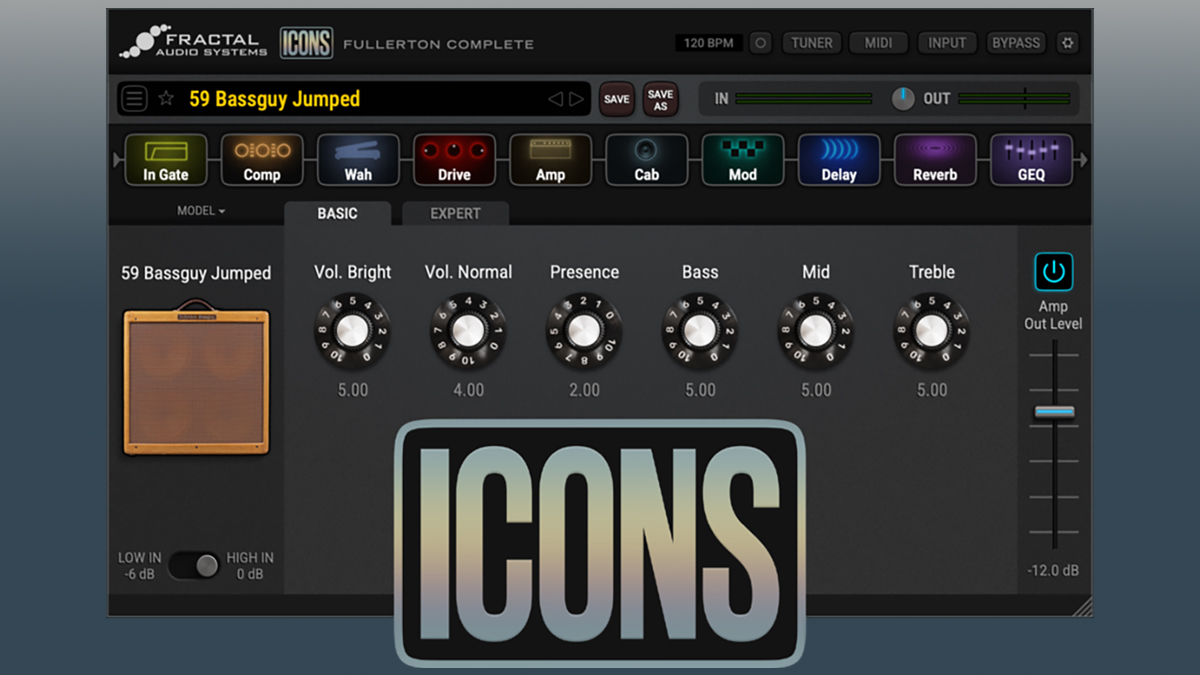Say hello to the Prusacaster, a 3D-printed offset electric guitar built around a $100 Tele-style starter kit
DIY guitar building just got a whole lot more exciting with this hybrid design that requires a Harley Benton T-style Guitar Kit, an MK3-sized 3D printer, some superglue and a steady hand
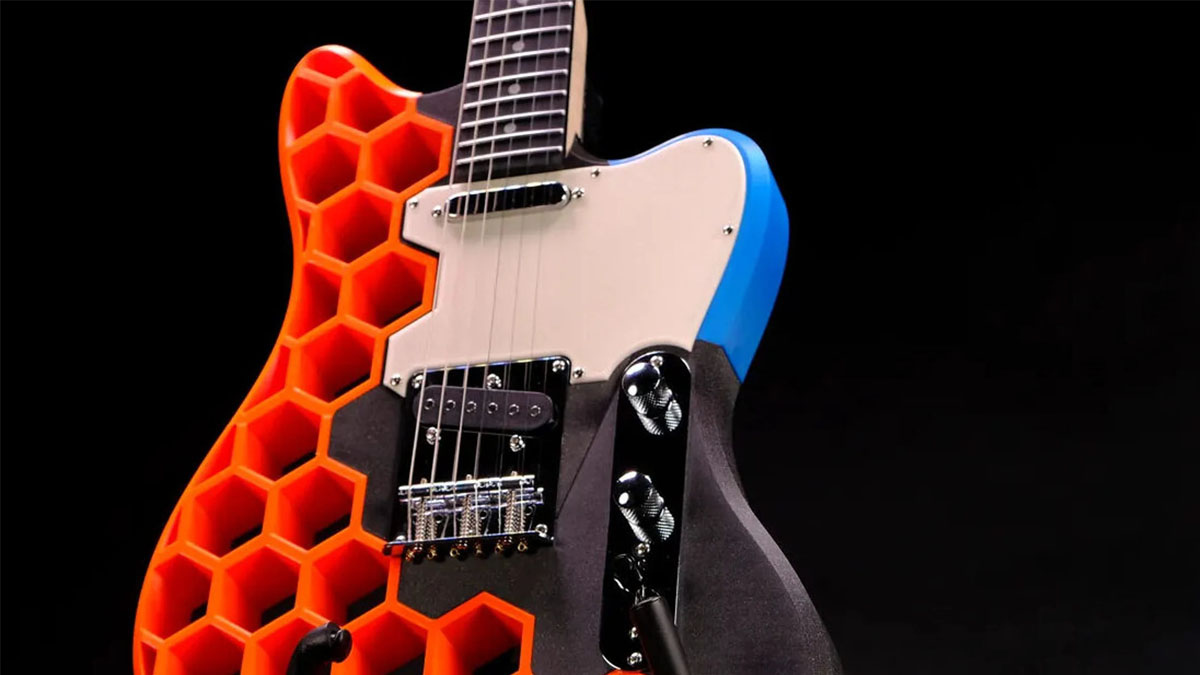
All the latest guitar news, interviews, lessons, reviews, deals and more, direct to your inbox!
You are now subscribed
Your newsletter sign-up was successful
Ever since Leo Fender popularized the mass-marketed electric guitar, players have been modding and making their own designs, embracing a workbench-to-stage ethos in search of a guitar that feels truly theirs. But with the dawn of 3D printing, it’s like the Prusa MK3 has done for the Partscaster movement what the jet airplane has done for travel.
Take the Prusacaster. Taking its name from the MK3-sized machine that printed some two-thirds of its body, the rest harvested from organs supplied by Harley Benton’s T-style guitar kit, the Prusacaster is a 3D printable guitar design from Mikoláš Zuza, downloadable via Creative Commons 4.0 license from Printables, and it is very, very cool.
It might have T-style DNA at its core. Old-school three barrel saddles and two single-coils, controls mounted on a metal plate, yadda yadda yadda. But then we have this honeycomb body design, sure to make it lightweight, intriguing as to what it means for guitar tone, and 100 per cent guaranteed to make the guitar photogenic, or in the parlance of our times, Instagrammable.
Helpfully, there is a video documenting the build, addressing some of the issues and concerns regarding the tone, in which each piece of plastic is printed separately and joined together with superglue. Don’t scoff – how many among us are playing a guitar whose nut is sporting a temporary-to-permanent superglue repair? Yeah, and it still sounds good.
The Prusacaster is not the first 3D-printed guitar. There are many out there in the wild. But as Zuza explains on his blog on the Prusa site, playability and tone were two issues among others that players might find when attempting their own build.
“Many of these printed guitars were not actually very playable, and some projects that looked nice either didn’t share the 3D model, lacked instructions, were overly complicated or were too expensive,” he writes.
This was Zuza’s first 3D-printed build, and like any well-ordered project, it was steered by a some carefully chosen design priorities. The Prusacaster had to be cheap – “if I’m spending a lot of money on a guitar, I’m buying a genuine Fender or Gibson” – simple to assemble without requiring non-essential hardware. The hardware had to be easily accessible online.
All the latest guitar news, interviews, lessons, reviews, deals and more, direct to your inbox!
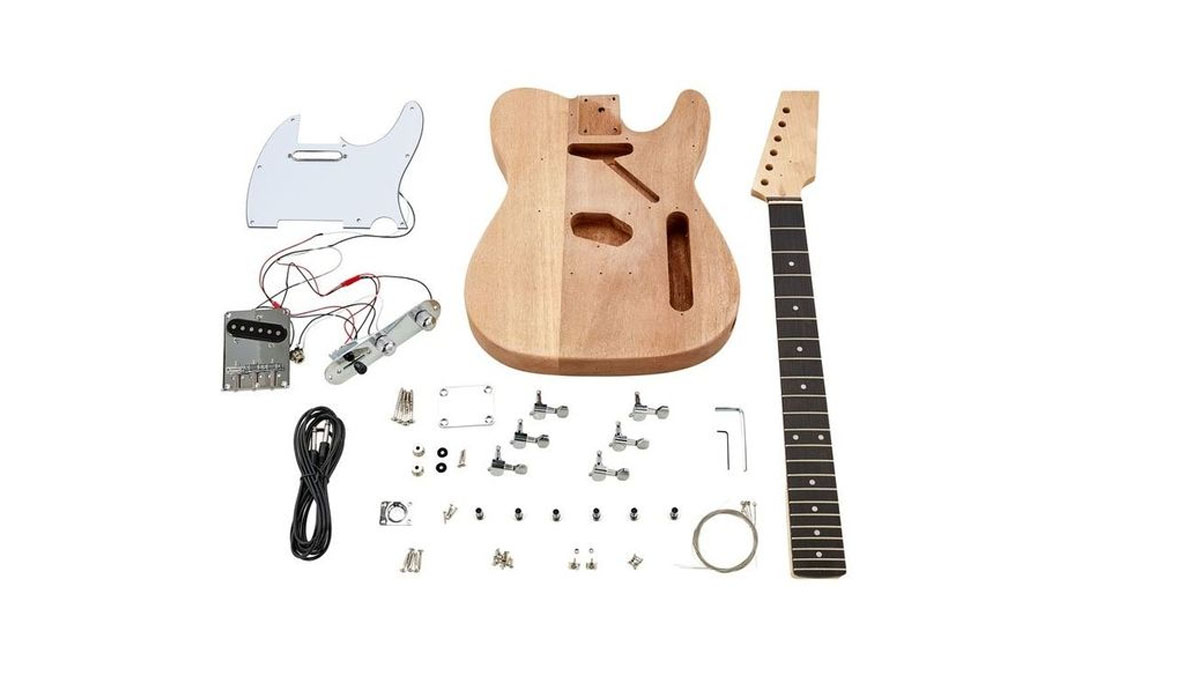
From a practical perspective, the pieces had to fit the Original Prusa i3 MK3S+ 3D printer. Finally, it had to play well and look good too. Choosing the T-Style kit from Harley Benton (available exclusively through Thomann for $95.76 plus $12.12 for shipping) simplified the design, and satisfied the budgetary concerns.
There are, of course. alternatives. You could take a jigsaw to your Fender Telecaster for parts but that way madness lies.
Zuza used the Telecaster as a launch-pad for the design but given that 3D-printing opens up the possibility of any shape the option was there to riff on the Mustang and Jazzmaster.
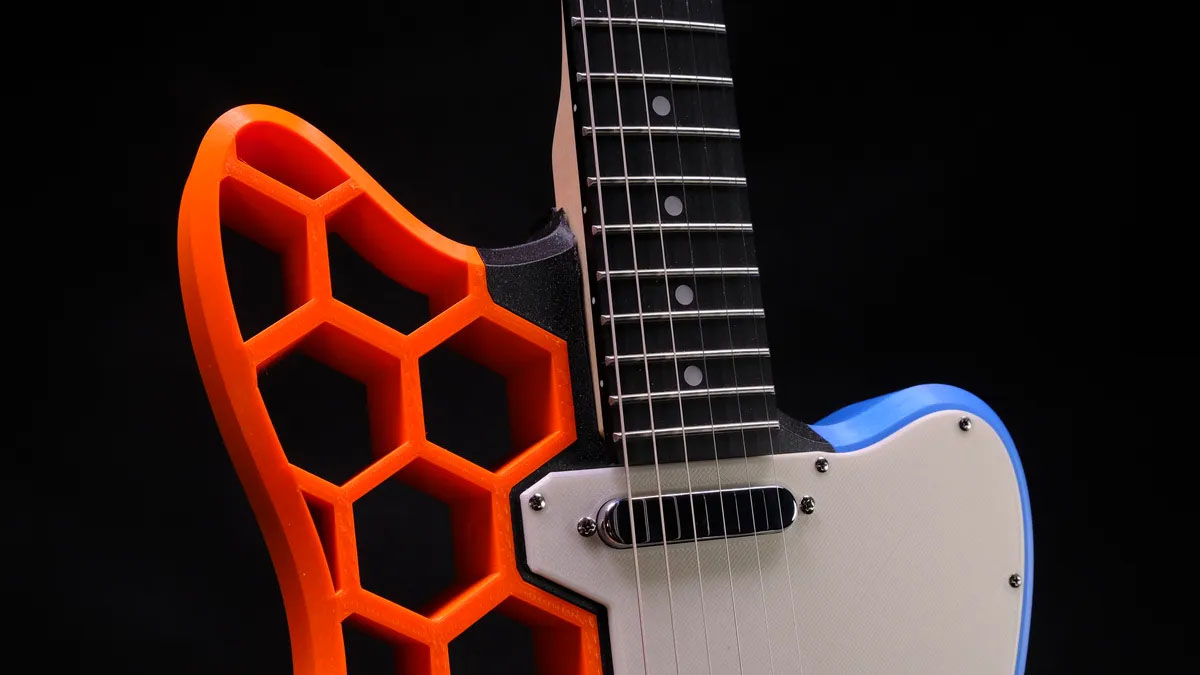
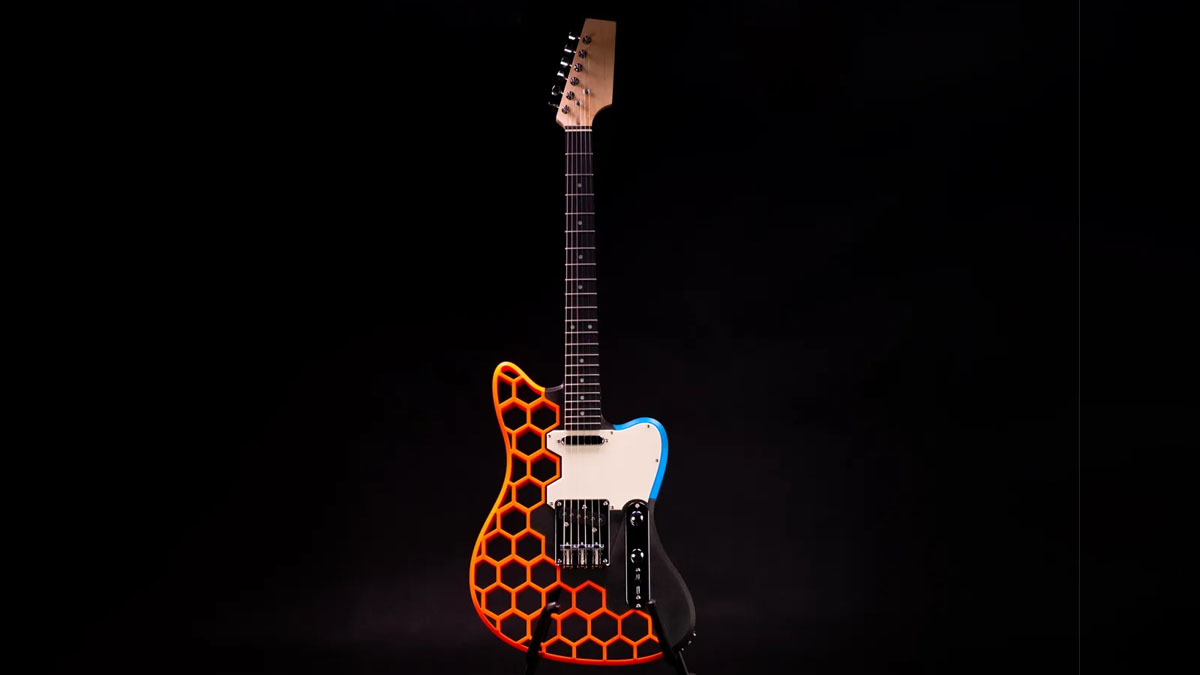
Using the Spline tool on Autodesk’s CAD software package Fusion 360 a hybrid shape was created. The hexagon honeycomb is a cool design feature but it was practical, too, and circumvented the size limitations you might encounter when trying to print an entire piece of plastic.
If you want to learn more about the build in-depth, and maybe to take a deep breath and decide to build your own, you can read all about it on Zuza’s blog. All in, this guitar should set you back under $150. Cheap electric guitars don’t get much cheaper. Custom-built bespoke electrics certainly don’t.
Jonathan Horsley has been writing about guitars since 2005, playing them since 1990, and regularly contributes to publications including Guitar World, MusicRadar and Total Guitar. He uses Jazz III nylon picks, 10s during the week, 9s at the weekend, and shamefully still struggles with rhythm figure one of Van Halen’s Panama.

